Affiliate links on Android Authority may earn us a commission. Learn more.
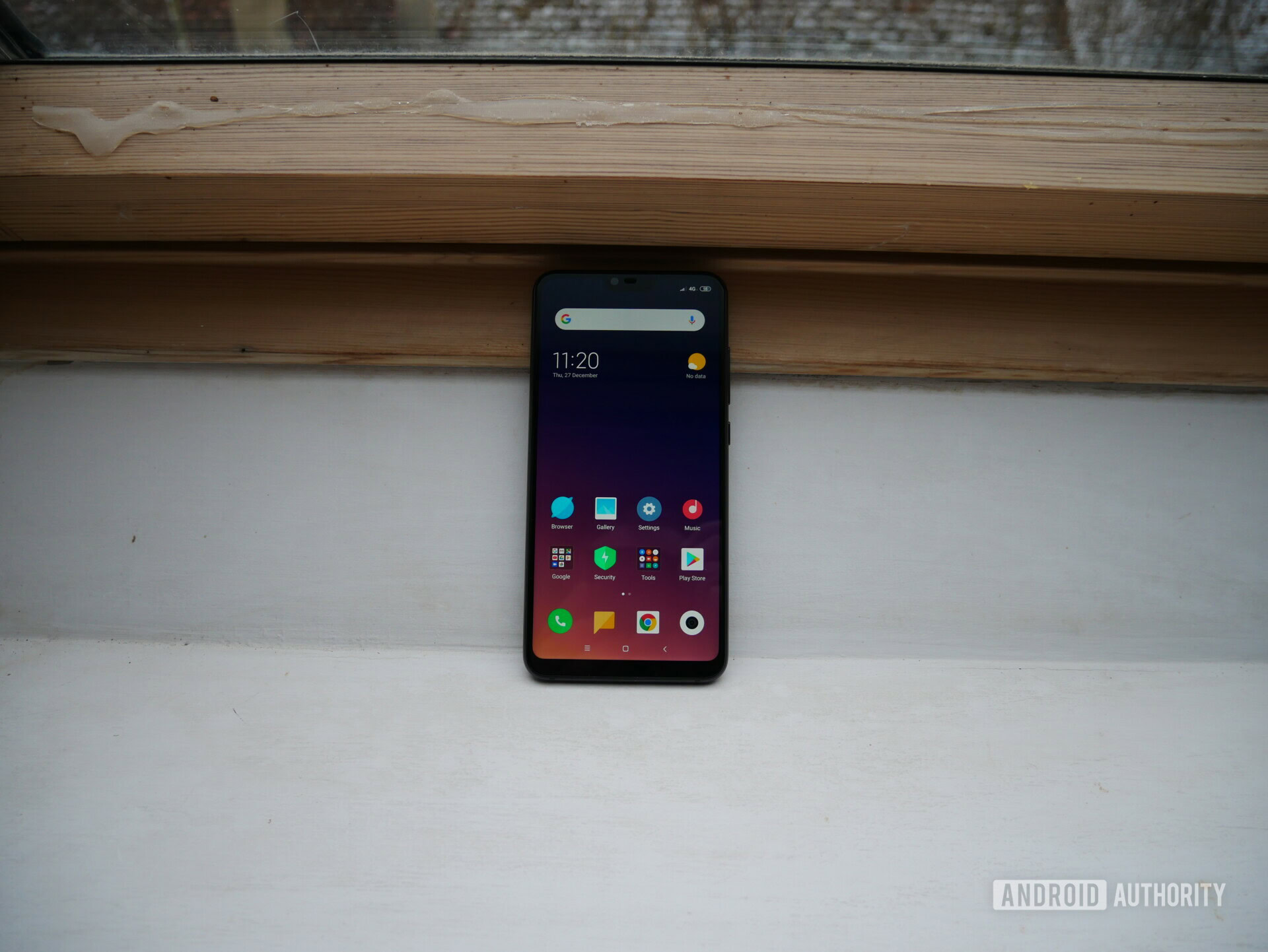
Xiaomi Mi 8 Lite review: Lite, but not a lightweight
January 4, 2019
Xiaomi Mi 8 Lite
What we like
What we don't like
Our scores
Xiaomi Mi 8 Lite
We had high hopes for Xiaomi’s flagship Mi 8 Pro, but unfortunately the device suffered from some amateur mistakes. We’re hoping the more affordable Mi 8 Lite won’t suffer the same fate. Read our full Xiaomi Mi 8 Lite review to find out!
The review unit was provided to Android Authority by Xiaomi.
Design
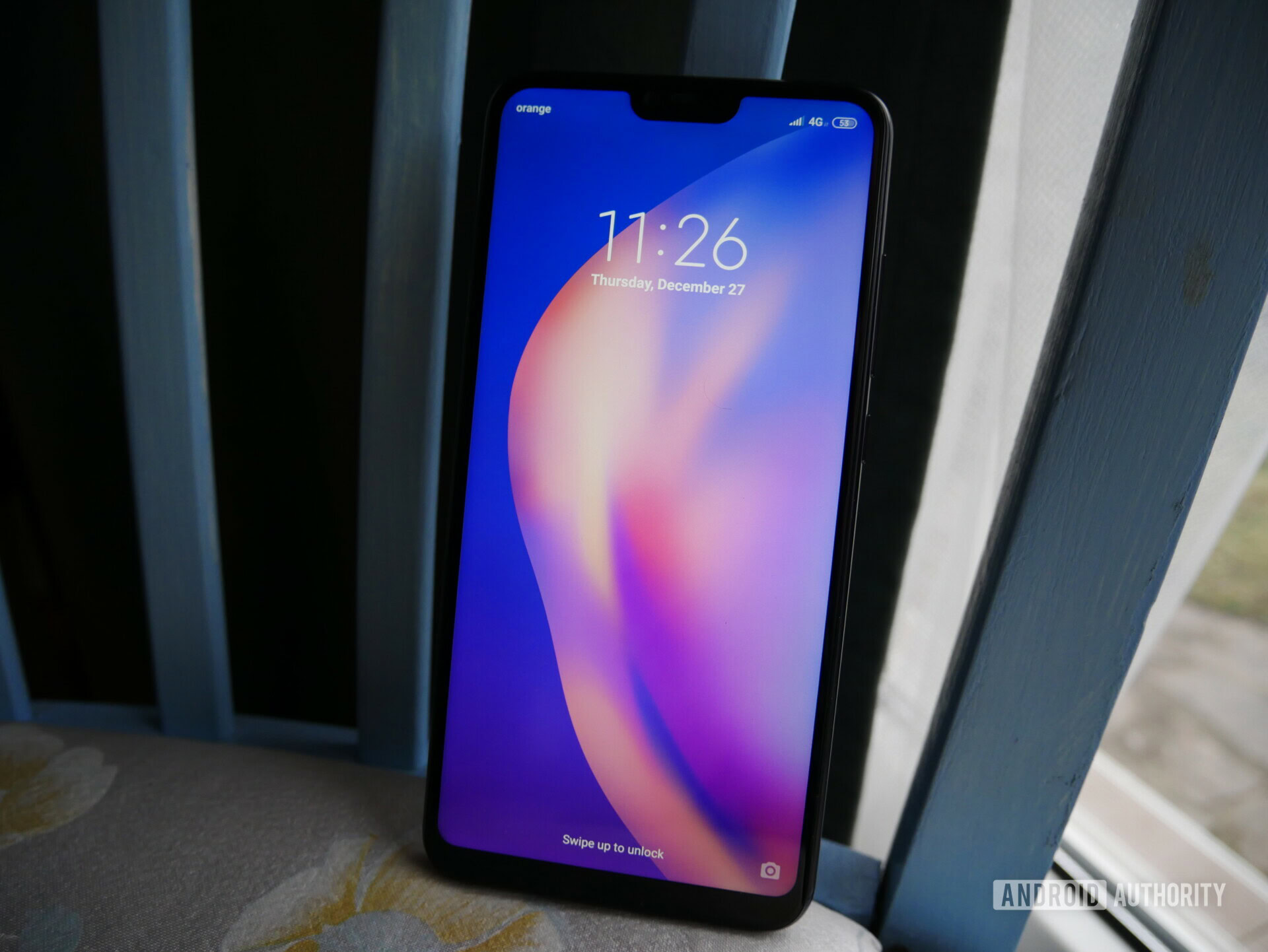

The Xiaomi Mi 8 Lite has a notch. If you hate notches with a passion, this probably isn’t the phone for you. If you just find them only mildly annoying, a “hide notch” option can darken the display around the notch and make it look like a more traditional status bar. If like me, you don’t care one way or the other, the notch is fine. The display is almost edge-to-edge and the bezels are small, but there is a bit of a chin.
The device has a glass back, with an aluminum frame acting as the filling. The glass on the back can be a fingerprint magnet, or more precisely a smear magnet, but that is basically normal nowadays. It’s quite slippery, too. It even slipped off my desk a couple of times when I put it on top of something else. On the back, you will also find the fingerprint reader, two camera lenses, and an LED flash.
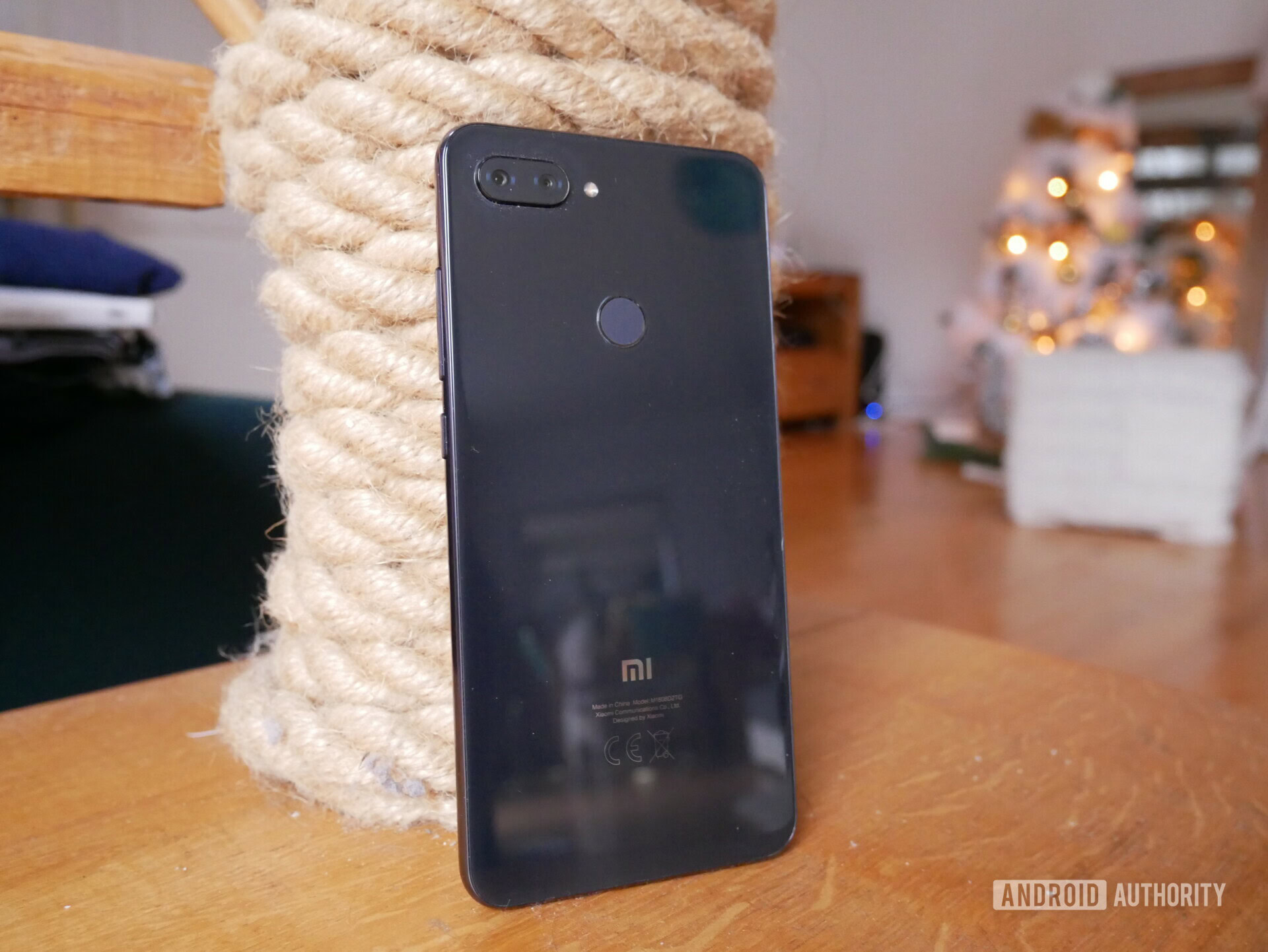
The buttons are well positioned on the right side, and the SIM tray is on the left. On the bottom edge of the device, there is a USB Type-C connector and dual speaker grills. Sadly there is only a single speaker and the other grill is just for aesthetics. The audio is loud, but to my untrained ear, it seems strained at the highest volume levels. I found it more comfortable to just dial back the volume a little and that improved the clarity.
I didn’t mention a headphone jack, because it doesn’t have one. Don’t get me started on this, but it is worth reading about how Bluetooth headphones are terrible. The only slightly redeeming thing is the dongle in the box. Also in the box there is a charger, a cable for the charger, and a silicon case.
Display
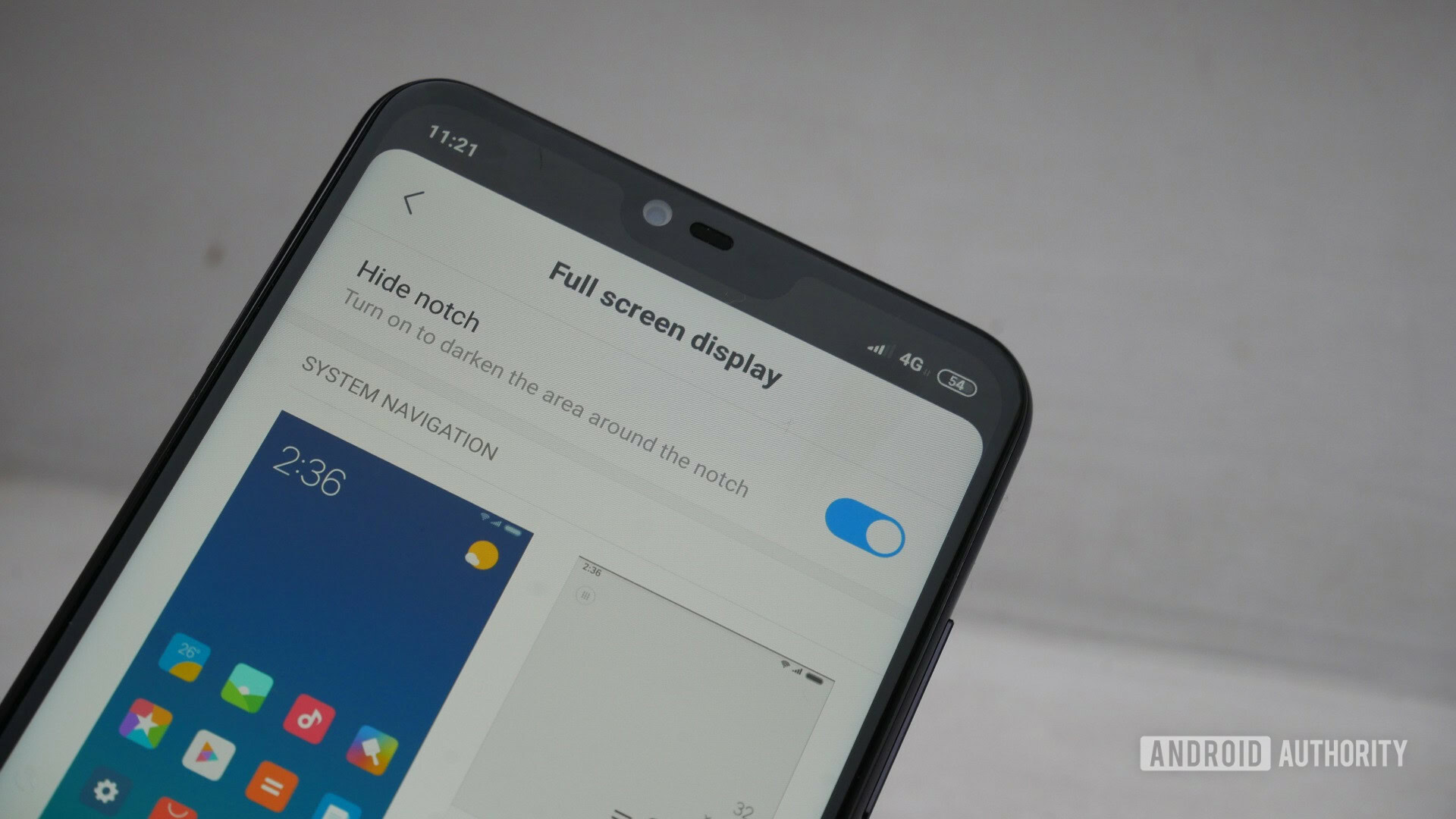
The Mi 8 Lite has a 6.26-inch FHD+ IPS LCD display. It is a decent enough panel, but nothing extraordinary. The brightness is especially good for indoor use, but you might struggle to read it in direct sunlight. This is an LCD panel, so the blacks aren’t as deep as an AMOLED panel, which you can see when you turn on the “hide notch” feature. There is a difference between the black on the notch compared to the black on the panel.
There is no physical home button, so on-screen navigation is the order of the day. The display offers a screen resolution of 2,280 x 1,080 (FHD+). The display has a 19:9 aspect ratio, and a 403ppi density. Under the Contrast and Colors settings you can switch between different color temperature: Default, Warm and Cool; or different contrast levels: Automatic, Increased, and Standard.
Overall the display is decidedly average, but not a negative point.
See also: The best smartphone displays of 2018
Software
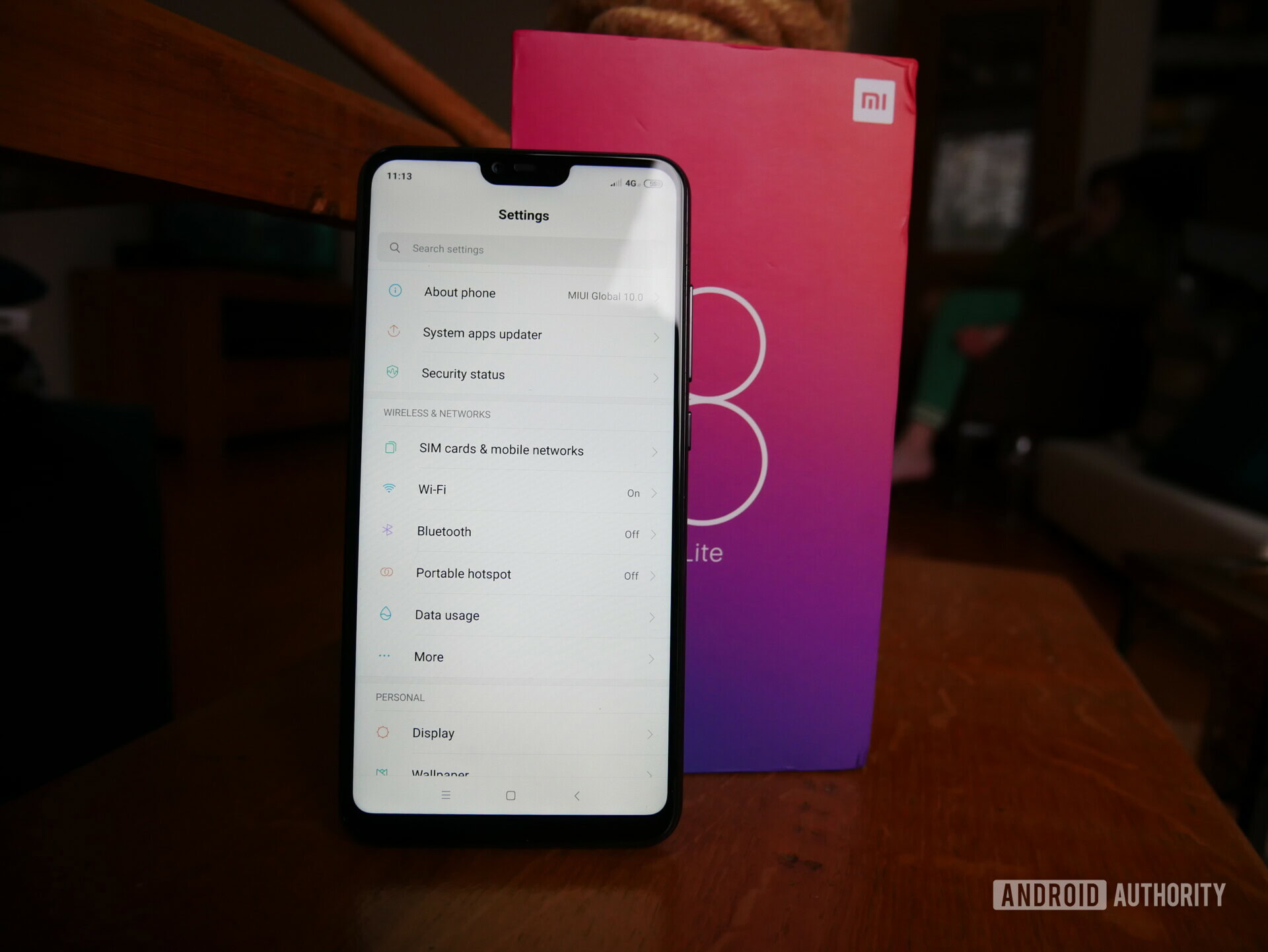
The Mi 8 Lite comes with Android 8.1 Oreo via MIUI 10. MIUI is Xiaomi’s custom Android firmware which includes lots of features not available in vanilla Android. These include full-screen gestures, for UI navigation; Mi Drop, for wireless file transfers; Dual Apps, so you can use an app with two accounts; Second Space, which allows you to use different passcodes or fingerprints to access different profiles; a better recent apps menu; and lots of UI tweaks and redesigns. Besides the different icons and themes, the most noticeable difference is the lack of an app drawer.
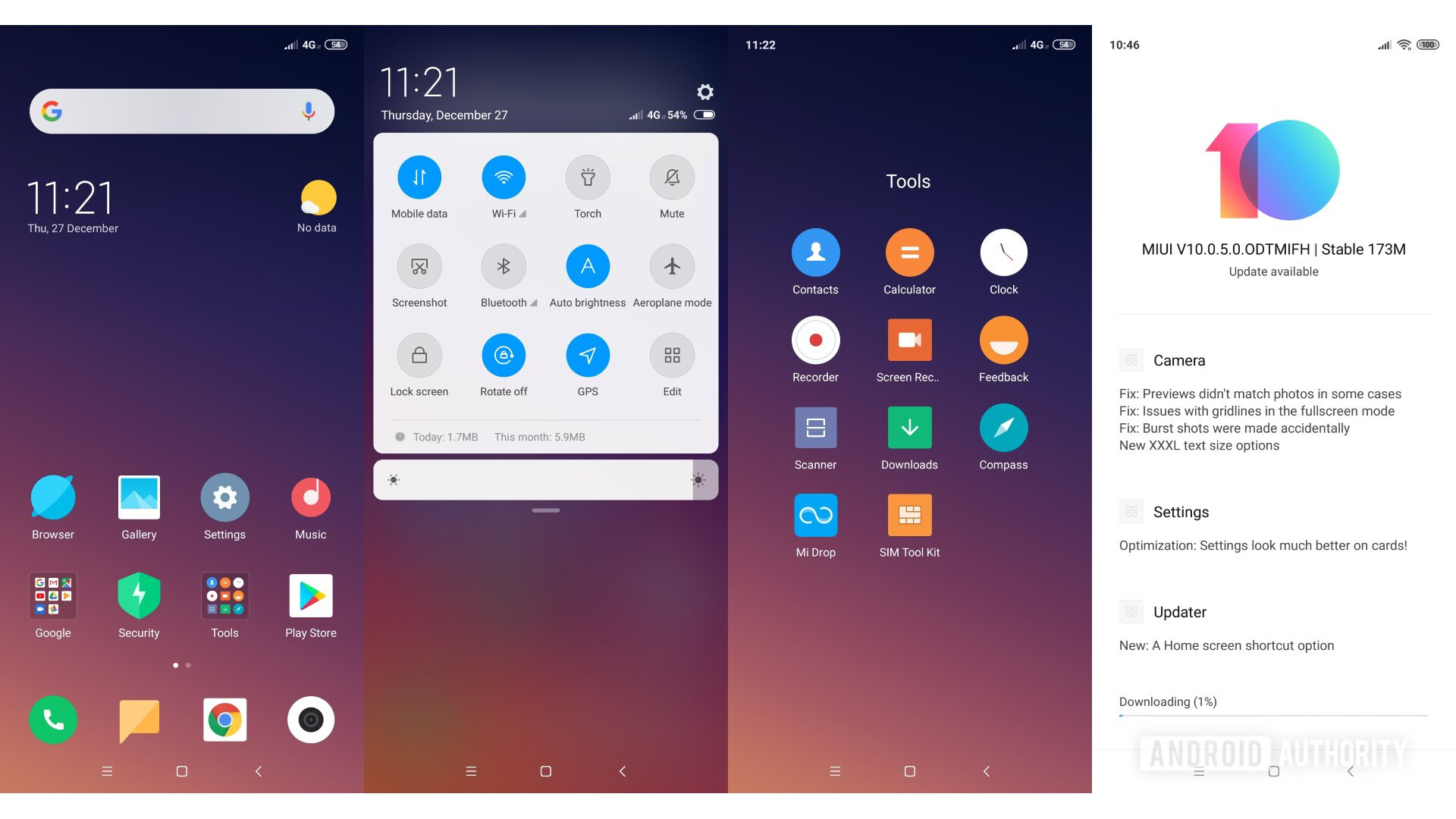
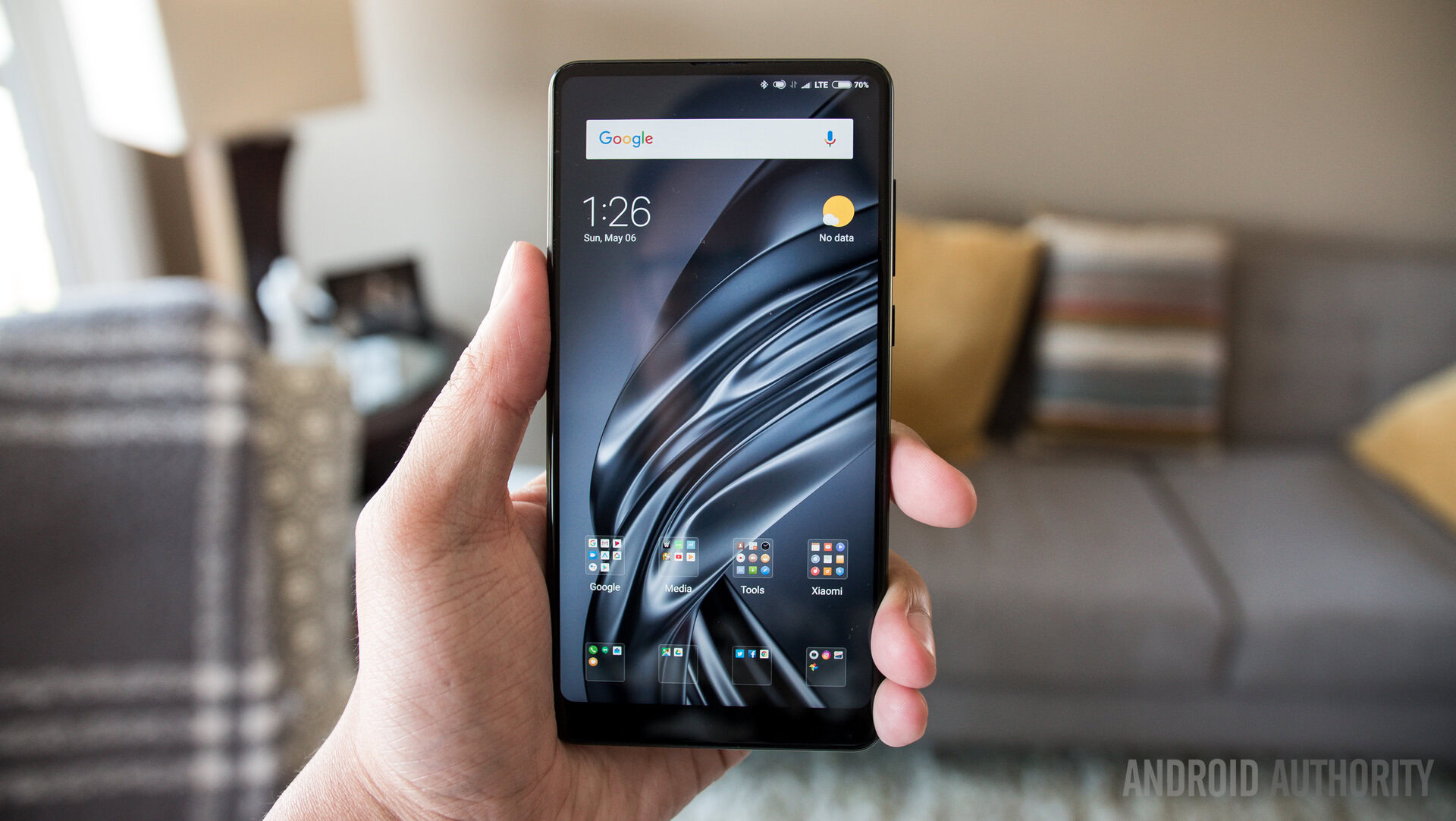
One plus side to MIUI is that Xiaomi is quite good at providing updates. The device received an update with bug fixes during my time review testing.
While MIUI offers quite a lot of customization compared to stock Android, you still access to all of Google’s services like Play Store, Chrome, and YouTube. You also get access to the Google Assistant by long pressing on the home key.
Performance
The Mi 8 Lite uses the 14nm Snapdragon 660. It has an octa-core CPU with four 2.2GHz Cortex-A73 CPU cores and four 1.8GHz Cortex-A53 cores. For 3D intensive gaming, there is the Adreno 512 GPU. For a mid-range processor, albeit one at the upper end of the mid-range, the performance of the Snapdragon 660 is surprisingly good. The Mi 8 Lite managed a time of 3:00 during its Speed Test G head-to-head with the Samsung Galaxy A7 (2018). Also, I tested the device with both Asphalt 9 and PUBG Mobile and found the gameplay to be smooth.
The Snapdragon 660 also has a built-in Qualcomm X12 LTE modem which supports 2G, 3G and 4G, with LTE download speeds reaching 600Mbps. There is also support for Qualcomm’s Artificial Intelligence Engine (AIE) via the Hexagon DSP and its Hexagon Vector eXtensions. The Mi 8 Lite couples the Snapdragon with 4GB of RAM (6GB on some models), 64GB of internal storage (128GB models available) and a microSD card slot.
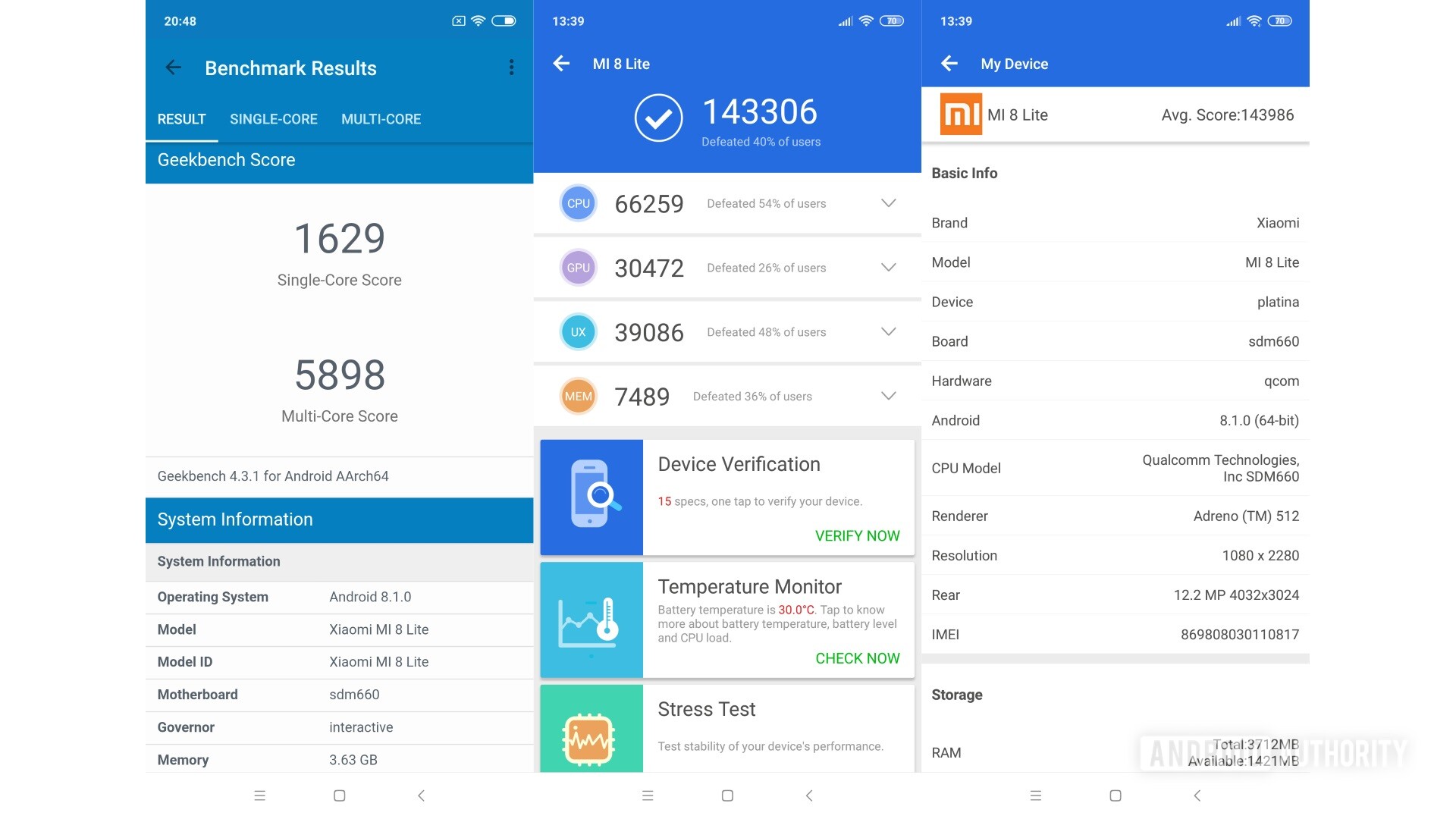
For those who like benchmark numbers, the Mi 8 Lite scored 1629 on Geekbench’s single-core tests and 5898 on its multi-core tests. That puts in into the same ballpark as a Galaxy S7 with a Snapdragon 820 processor. For AnTuTu, which also tests the GPU, the score was 143,306. The AnTuTu score puts the Mi 8 Lite in the same league as a flagship device from 2016.
Battery life
There is a 3,350mAh battery in the Mi 8 Lite, which is a good size especially for a device with a 6.26-inch display. It is certainly big enough to give you all-day battery life. According to my testing, you should get at least six hours of screen-on time per charge. That number will increase if you do less demanding tasks like watching streaming video over Wi-Fi. Remember, screen brightness can dramatically change the battery life. If you bump up the brightness to max, expect to shave time off.
The device supports Quick Charge 3.0, but the supplied charger is only a 10W, non-QC unit.
Camera
Remember way back in the days of the rear camera megapixel war? Each new generation of device tried to better the previous: 8MP, then 12MP, then 16MP, and so on. Things have certainly changed since then and the Mi 8 Lite is a perfect example of how. It has a 24MP front-facing camera for selfies. On the back it has two lenses, a 12MP sensor with dual pixel autofocus and 1.4μm wide pixels and a second 5MP camera, just for depth information.

The depth camera is used for creating pictures with a bokeh effect, by blurring out the background and leaving the subject untouched. Like many of these software assisted portrait modes, it can be very much hit or miss. When it works, it works well. When it fails, the results can be unpredictable.
Overall the images are lacking in dynamic range and can seem bland. There is however another software trick — an AI mode. It applies color pre-sets according to the detected scene. Sometimes these can be a little oversaturated, but the AI mode can certainly bring more vibrancy to some shots.

Ignoring the lack of OIS, the Mi 8 Lite is a capable video shooter. It can do 4K at 30fps, 1080p at 60fps, 1080p at 30fps with electronic image stabilization, 1080p slow mode video at 120fps, and 240fps HFR at 720p! Not bad for a mid-range device.
The 24MP selfie camera comes with quite a few tricks including 1.8μm wide pixels, AI scene detection, AI light adjustment, and AI beauty mode. Unfortunately, it has fixed focus, set for just about an arm’s length away.

More camera samples can be found below, or you can view the full-sized samples at this Google Drive link.
Xiaomi Mi 8 Lite specs
| Xiaomi Mi 8 Lite | |
|---|---|
Display | 6.26-inch IPS LCD 19:9 aspect ratio 2,280 x 1,080 resolution 403ppi |
SoC | Qualcomm Snapdragon 660 64-bit Octa-core processor, up to 2.2GHz |
GPU | Adreno 512, up to 650MHz |
RAM | 4/6GB |
Storage | 64/128GB |
Cameras | Rear cameras: 12MP sensor, 1.4μm pixels, f/1.9 large aperture, Dual Pixel Auto-focus 5MP sensor, SAMSUNG S5K5E8, 1.12μm pixels Front camera: 24MP senspr, Sony IMX 576, 4-in-1 Super Pixel technology, 1.8μm pixels |
Audio | Bottom-firing speaker USB Type-C No 3.5mm jack |
Battery | 3,350mAh Non-removable Supports QC3.0 quick charging The included charger is not QC3.0 compatible |
Sensors | Distance sensor Gyroscope Accelerometer Electronic compass Ambient light sensor Vibration motor Fingerprint sensor |
Network | GSM:B2, B3, B5, B8 WCDMA:B1, B2, B4, B5, B8 TDD-LTE:B38, B40 FDD-LTE:B1, B2, B3, B4, B5, B7, B8, B20, B28 |
Connectivity | 802.11a/b/g/n/ac - 2.4G Wi-Fi / 5G Wi-Fi Bluetooth 5.0 GPS, GLONASS, Beidou |
SIM | Nano-SIM + Nano-SIM or Nano-SIM + microSD card Either card can be set as the primary SIM card |
Software | Android 8.1 Oreo MIUI 10 |
Dimensions and weight | 156.4 x 75.8 x 7.5mm 169g |
Colors | aurora blue / midnight black |
Pricing and final thoughts
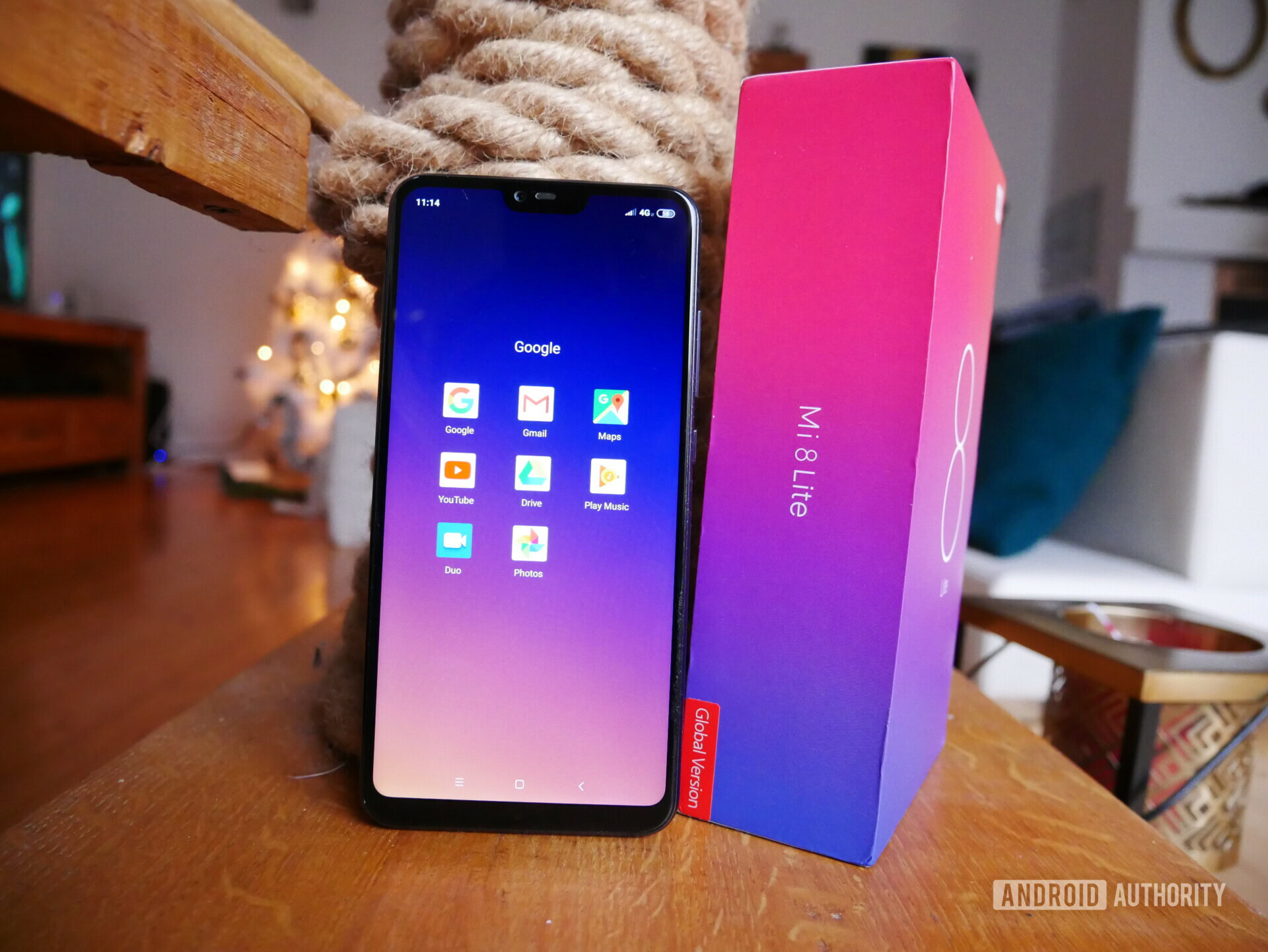
Overall the Xiaomi Mi 8 Lite is a better-than-average mid-range device. It carries the “Lite” label, but it’s still a capable device. The inclusion of a depth camera is something we are seeing more and more in the mid-range and it is a welcome feature. The Snapdragon 660 offers great mid-range performance and the battery life is good. However, the lack of a headphone jack is disappointing.
If the Mi 8 Lite doesn’t tempt you, plenty of other mid-range phones have solid chipsets and good cameras, including the Xiaomi Mi A2, Nokia 7.1 Plus, HONOR Play, ASUS Zenfone 5Z, Moto G6 Plus, or of course the flagship spec’d Pocophone F1.
The Xiaomi Mi 8 Lite is available in aurora blue and midnight black for around 270 euros (~$308) in Europe and 279 pounds in the U.K. I have seen it for less during sales, too. The device isn’t officially available in the U.S., however you can find it on Amazon.
Thoughts? Is the Xiaomi Mi 8 Lite a winner in your book?